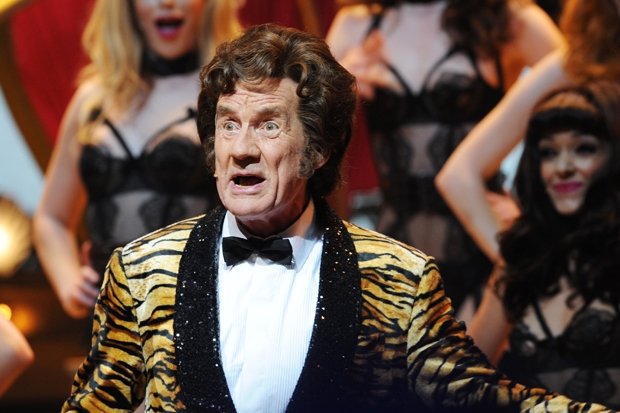In these diaries, which I found excellent in a very specific way, Michael Palin tells us about his life between the late 1980s and the late 1990s. At the start of this period, he was about to become a hugely successful presenter of travel programmes. Ten years later, he was wondering if this was, in fact, what he wanted to be. ‘Should I accept that this is what I’m best suited for?’, he writes. Or should he try to do something else, like be an ‘arts presenter’ or a novelist? His own verdict: ‘I don’t know.’
Palin is obviously a man of great qualities. For instance, he’s almost always an optimist, but never a bore. He’s clever, he’s charming, he has good taste. But he has something else, too, and he has this thing in such abundance that it’s become the main quality he’s known for. He tells us he likes to be liked. And the thing is: everybody likes him. It just goes without saying. I like him. I’ve liked him from the start. Compared to a normal person’s life, Palin’s seems like a procession of people trying to tell him, in one way or another, how much they like him.
At first, you think how lucky he is to live this life. He’s always being asked to go here and there, to accept awards or to be linked with this or that. Everybody knows that to be associated with Palin is a good thing. He has great talent and great decency, an extremely rare combination. So he zooms around a lot, going to talks and ceremonies. The city of Sheffield (his home town) wants him to make a speech; the anti-apartheid people want him to join their campaign; the BBC wants him on the radio; film directors want him to play cameos; others want him to do voiceovers and ads, to attend parties, to take part in a conker championship. ‘Offers flood in every day, and just sorting through and fighting them off is work enough,’ he writes in 1990.
After reading this for a few hours (it’s compulsive) I began to think of the Julian Barnes story about a man who dies and wakes up in the afterlife. Everybody seems to love him and he can do anything he likes. At first he thinks he’s in heaven. But then you begin to wonder. And then, after a while, the penny drops and you begin to think he might be in hell. The moment this thought occurred to me was when I read Palin’s entry for 3 October 1993. He’s been asked to take part in a conker competition on the Isle of Wight, as part of a project which involves his writing a column in a local newspaper. ‘Besieged by a coach party from Leicester’, he finds that ‘I just want to be ignored.’ Then: ‘I’m very near breaking point. I’m not in favour of filming the conker championship. I have a sixth sense that it will be a publicity stunt in which I shall be the bait.’ Then: ‘Failed miserably to hit my opponent’s conker and hoped only that the earth would open up beneath me.’
This is not just a bland celebrity diary. It’s a brilliant account of what it’s like to be famous. What is it like? It’s beguiling, and seductive, and also tormenting. You get lots of privileges and lots of choice. But how will you choose? Being relentlessly liked is, of course, better than the opposite. But it doesn’t feel like real life. Sometimes it feels like being attacked:
I push down the bar on the exit to Catherine Street and walk out into the fresh air. At that moment one of the autograph hunters spots me and they begin to run, pens and books raised, up the street towards me. I turn and shout at them very sharply. I don’t want to be bothered, I want time to myself… I cannot control my frustration. I remember kicking at the stone dressing on the back wall of the theatre which hurts my foot quite badly. I feel utterly despondent.
I said I loved this book in a very specific way. It is this: Palin connects with you as if he’s your friend. This book would feel like a good companion to just about anybody. And he can be superbly sharp, too, with his descriptions of people. Anthony Burgess is ‘lean, with the bloodless skin colour you see on old people in hospitals’; Colin Dexter is ‘like a very old baby’. This volume, which I seriously recommend, covers the deaths of Graham Chapman, Palin’s mother and Peter Cook. Mostly it’s a serious portrait of the life of a celebrity. A charmed life. But I wouldn’t wish it on anybody.
Available from the Spectator Bookshop, £20 Tel: 08430 600033






Comments